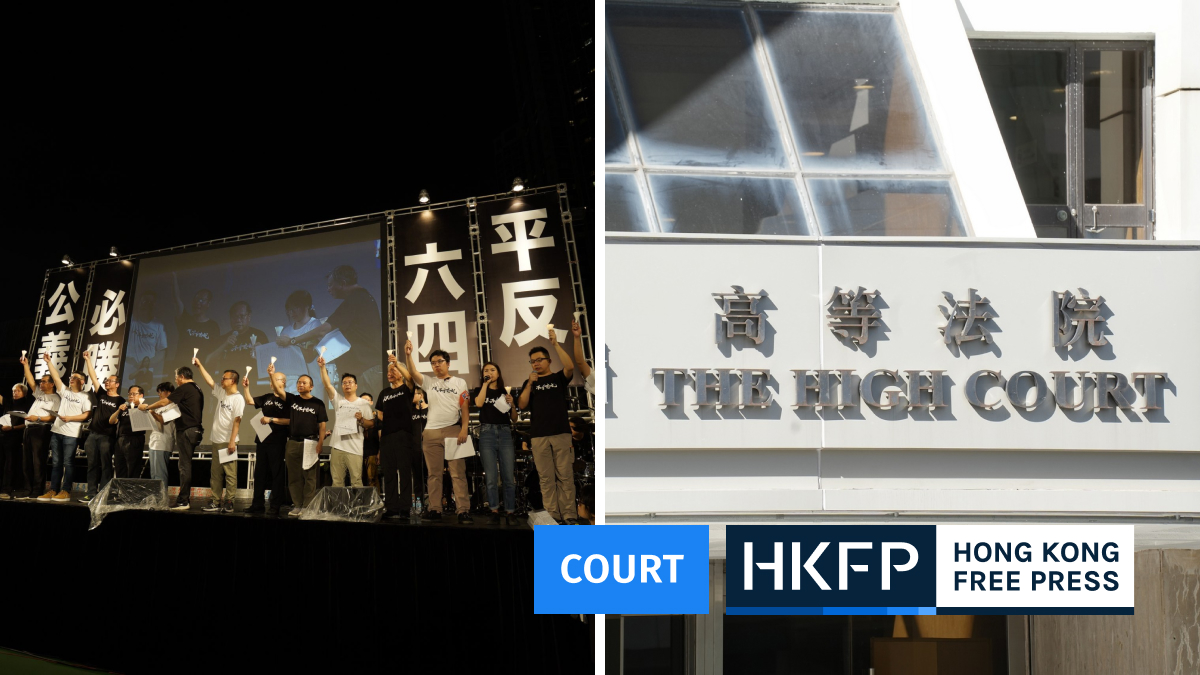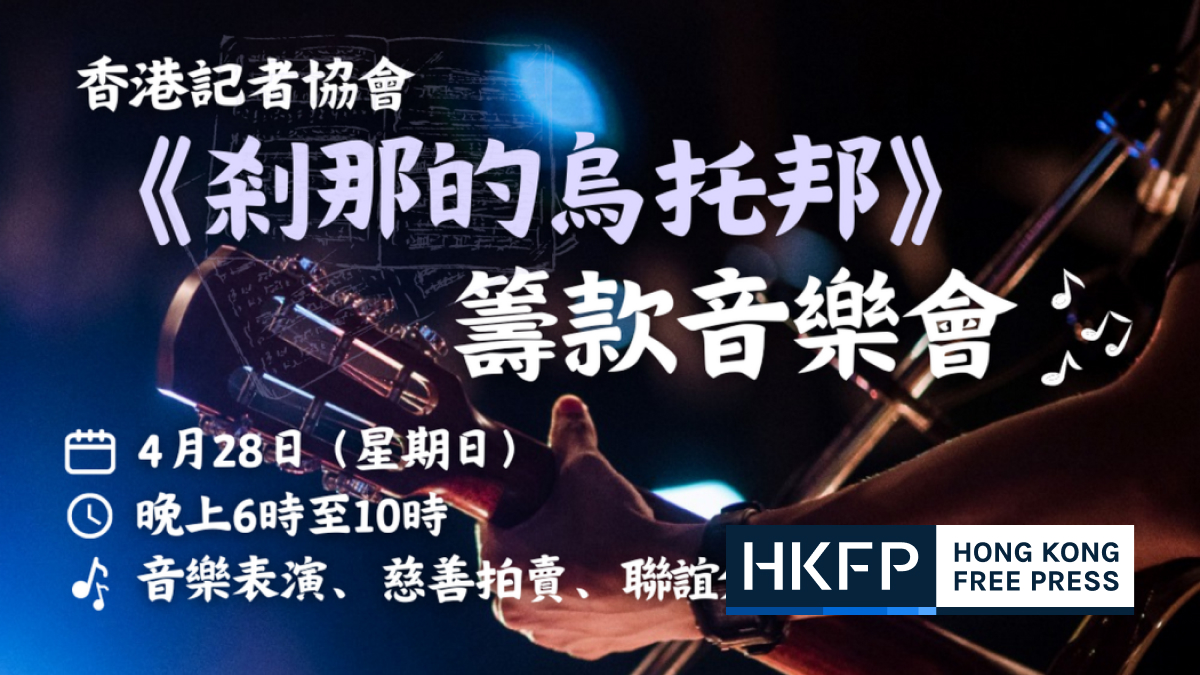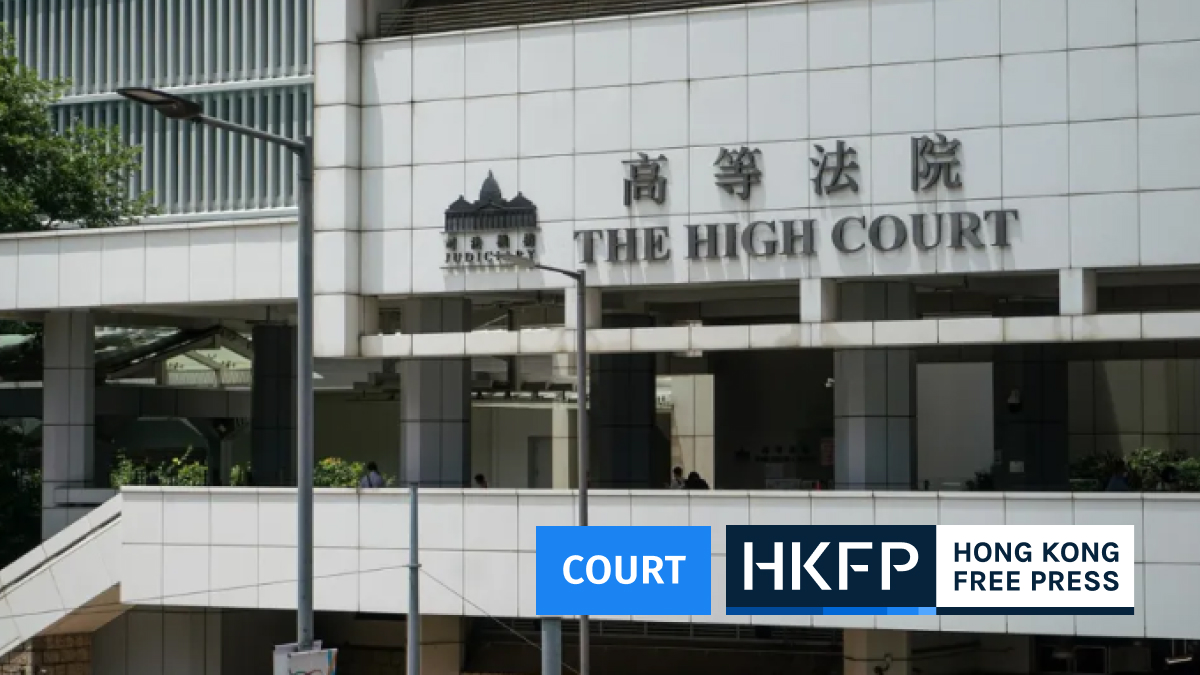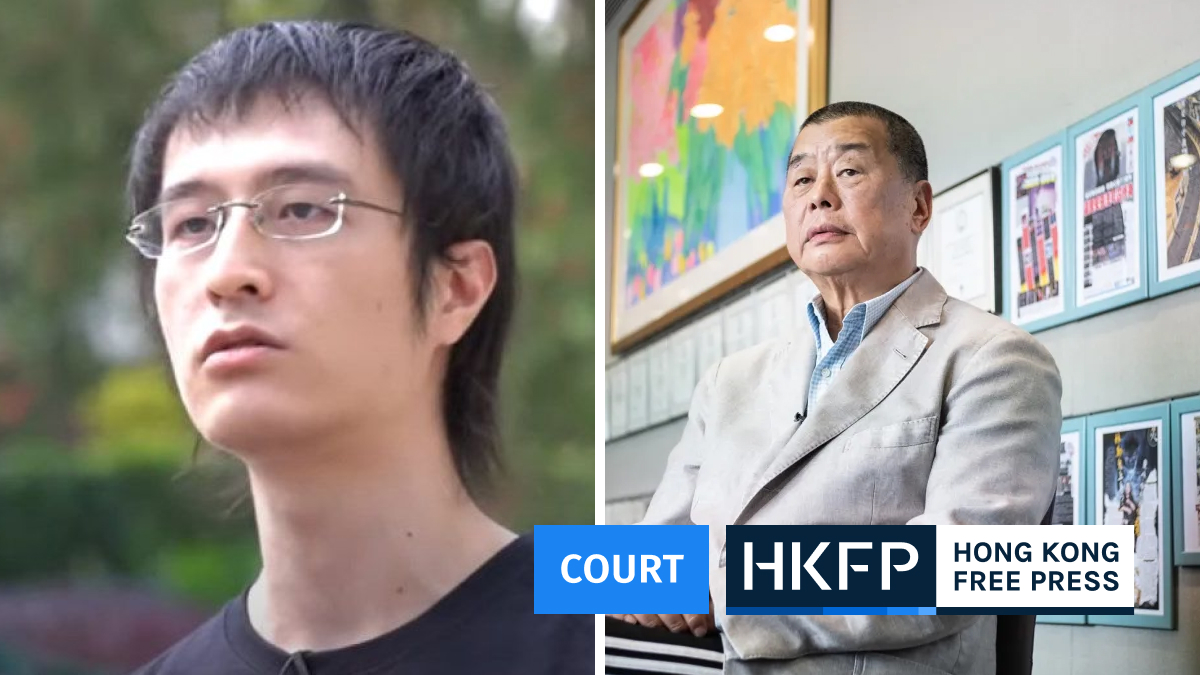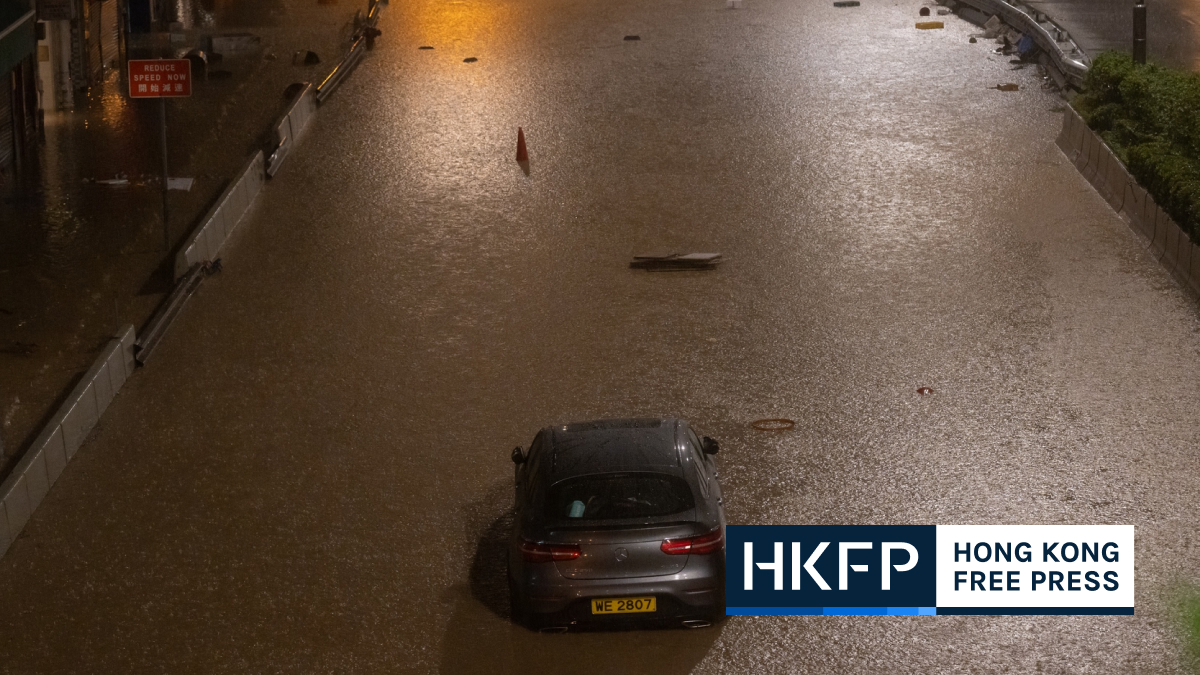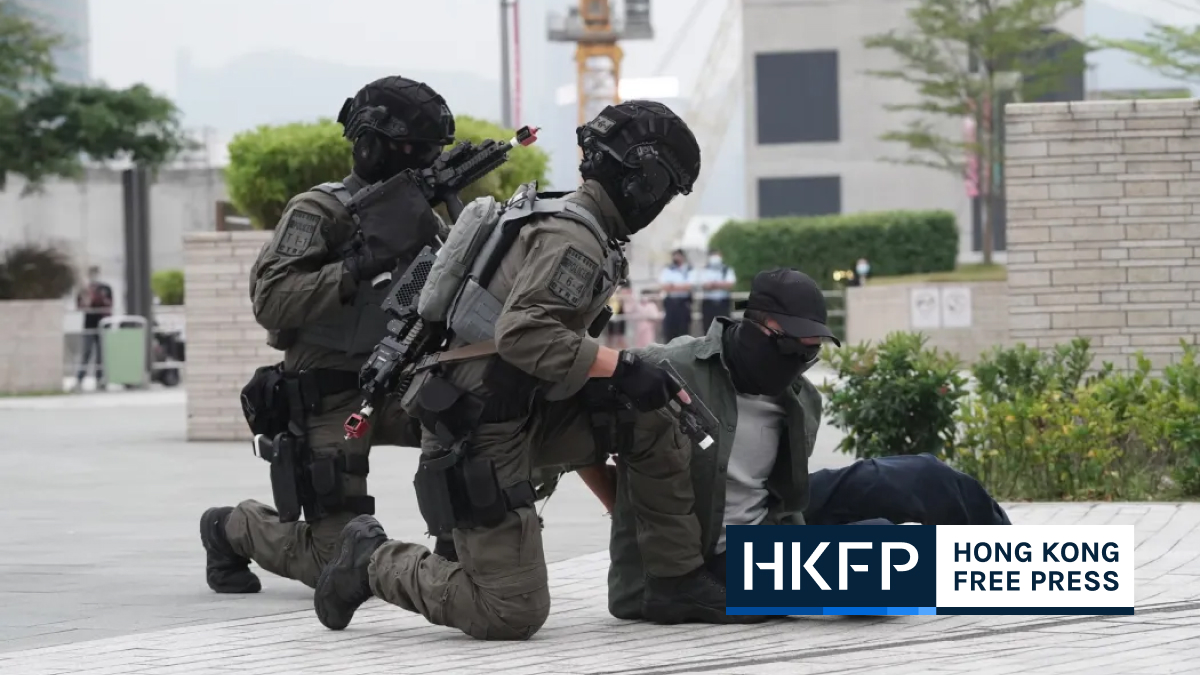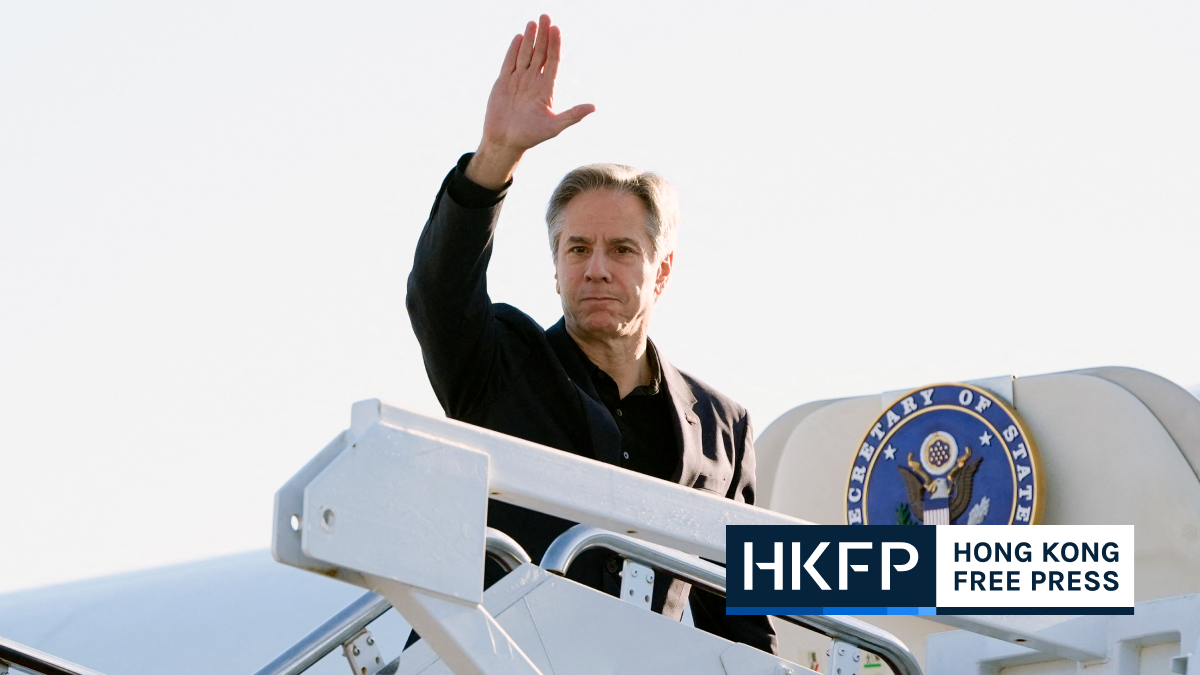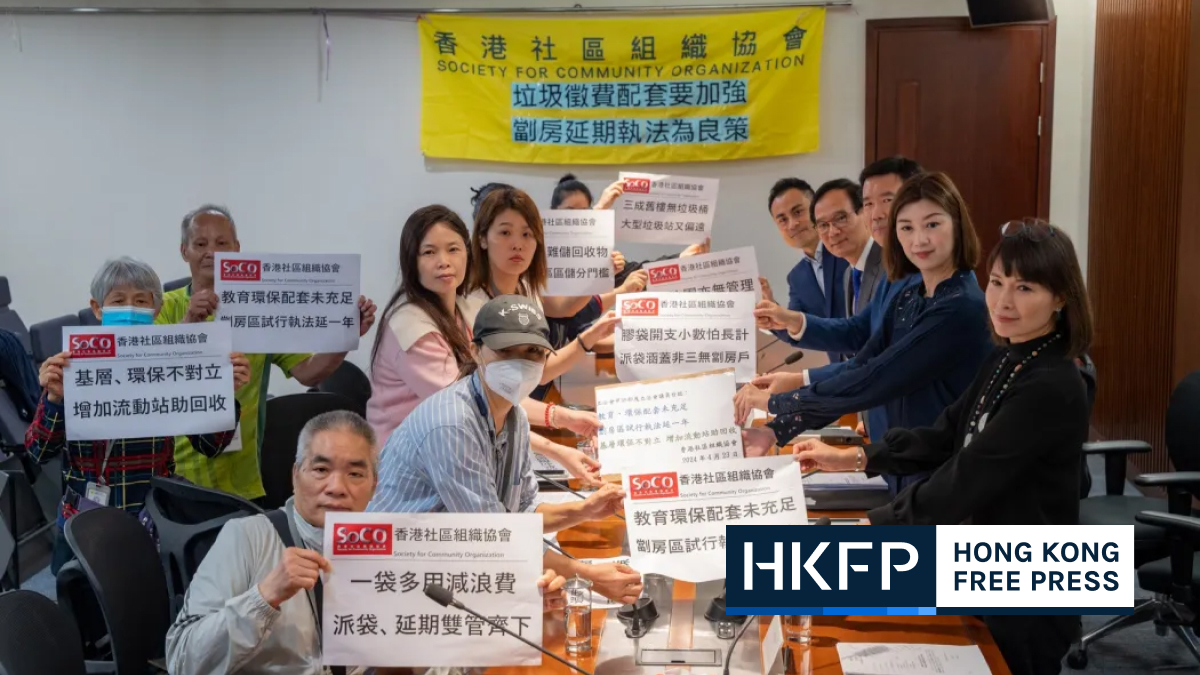When Luke Ching Chin-Wai put up his own advertisement at a MTR station in March, almost every Hong Kong news outlet flocked to cover the new project by the city’s best-known MTR cleaner.

The station billboard – rare because it was initiated by an employee rather than an advertiser or management – was crowdfunded at Art Basel last year. Instead of promoting products, its message is simpler – the correct way to dispose of them.
“Please don’t throw your unfinished drinks in rubbish bins,” says a message accompanied by a few red heart emojis. “Have you thought about us [the cleaners]? (smiley face).”
This is not Ching’s first creative labour rights campaign. The grey-haired 51-year-old cleaner, who is also an artist, a freelance columnist and a part-time university lecturer, has started various rights movements since 2007, with demands ranging from chairs for security guards and cashiers to Covid-19 subsidies for cleaners.
Timeline of selected Luke Ching’s activist art – Click to view
1996 – Graduated from The Chinese University of Hong Kong, Bachelor of Fine Arts
1998 – Graduated from The Chinese University of Hong Kong, Master of Fine Arts
2000 – Completed a one-year residency at MoMA PS1, United States
2007 – Launched long-term project “chair movement,” in which he successfully campaigned for Hong Kong Museum of Art to provide chairs for staff
2013 – Worked as a security guard at Hong Kong Railway Museum for a week
2014 – Worked as a security guard at The Polytechnic University of Hong Kong during the Umbrella Movement
2016 – Curated an exhibition about his experience working as a security guard
2017 – UA Cinema provided chairs for staff after Ching threatened to shame them with billboard ads in Times Square
2017 – Circle K stopped requiring staff to wear hats after Ching pushed for their withdrawal
2017 – Supermarket Wellcome provided chairs for staff after Ching worked as a cashier
2018 – Was fired as a street cleaner after he requested to see the contract
2019 – Worked as a mystery shopper
2021 – Worked as a cashier at supermarket Don Don Donki for four months
2021 to now – Working as a part-time MTR station cleaner
Ching’s projects have been frequently featured by major news outlets over the past decade and his popularity has risen again in recent years – especially after the political overhaul in the city.

In June 2020, Beijing inserted national security legislation directly into Hong Kong’s mini-constitution – bypassing the local legislature – following a year of pro-democracy protests and unrest. It criminalised subversion, secession, collusion with foreign forces and terrorist acts, which were broadly defined to include disruption to transport and other infrastructure.
After the security law was implemented, at least 58 civil society organisations – including unions, churches, media groups, and political parties – disbanded. The trend accelerated in the second half of 2021, with bastions of Hong Kong’s pro-democracy movement crumbling within months.
“There were no more rights petitions after 2020, and a lot of limits were set for unions… I guess reporters want something that shows how small changes can still be achieved in this climate – changes as small as a chair at the workplace,” the artist told HKFP.
Ching said a similar situation existed after the 2014 Umbrella Movement, when protesters occupied the streets for 79 days but failed to achieve any of their demands. Most were downcast at the outcome but Ching felt even more motivated to take his activist art to the next level.
No role within the system
Ching’s artistic journey began in the mid-90s when he enrolled in an arts programme at the Chinese University of Hong Kong (CUHK). As someone not particularly interested in academia, he liked the way an arts education allowed him to focus on his favourite topics without having to memorise theories.
After completing his Master of Arts degree at CUHK, Ching travelled to the United States in 2000 for a one-year residency at a contemporary art museum, returning to Hong Kong a year later. In those days, Hong Kong did not offer much in terms of art display space or galleries, but a rising interest in local issues caught Ching’s attention.

“Art was usually about abstract concepts, rather than down-to-earth matters… but with the social atmosphere at the time, art changed, “ Ching said. He pointed to the mass protests against the demolition of the Star Ferry Pier in 2006 as a turning point that made him feel: “we could all run this place together.”
In 2007 he began his foray into activist art with a “chair movement,” which inspired many of his subsequent works. The idea came to him when a security guard at the Hong Kong Museum of Art told him of his exhaustion after standing all day.
Ching then wrote a comment in the museum guest book, asking the director to provide chairs for guards. “The security guards were so happy; other guards asked me to write that on their guest books as well,” Ching said with a smile.
The artist started to invite others to sign the museum guest book, “I think a teacher brought their whole class to sign,” he said. Chairs were finally provided for the museum’s guards after a six-month campaign.
Ching himself began working as a guard in 2013, and later as a Circle K and supermarket cashier, along with other jobs often viewed as menial. His experiences in various workplaces inspired his art and also his social activism.

Ching transformed the experience of working as a security guard into an exhibition at an art space called Para Site in 2016, but the artist has also initiated several creative – and offbeat – projects. He has a collection of photos of him using fallen leaves to address a former government official about Covid-19 subsidies for outsourced transit cleaners. He also launched a competition for people to create pins to express their negative feelings about work in a subtle way.
Ching’s chair movement ended up being a huge success, as the labour authorities later formulated guidelines for employers to protect staff who need to stand for a long time. “I’d say there aren’t any retail brands in Hong Kong that would dare to not provide chairs for staff anymore,” Ching said.
The artist did not take full credit for the result. He said it was also the work of ex-lawmakers, such as Eddie Chu, who has been detained for subversion since 2021, and unions, including those that later disbanded due to safety concerns.
If there used to be several pillars supporting labour rights advocacy in the city, activist-artists like Ching may be some of the last still standing. Ching said that his role was to make certain social issues visible to the public, while it was up to lawmakers to bring those problems to the attention of the government.
“But it’s more difficult now… we do not hold any office, and we are nobody inside the system. However, as a civil citizen, I think we need to come up with some new methods,” Ching said.
“I don’t know exactly the new methods are yet. I guess we just have to use our imagination.”

During several social movements in Hong Kong, including a comparatively obscure and small-scale left-wing protest in 2011 inspired by the Occupy Wall Street movement, Ching said he saw the possibility of what community could be.
“We had free schools there, studying economic alternatives to capitalism and a market economy.”
Ching found the concepts amusing, especially when everyone knew that it was impossible for this financial hub to abandon capitalism. The 2011 Occupy Central movement “was not trying to change anything specific, but to experiment, to imagine other possibilities,” he said.
During the 2014 Umbrella Movement, he was working as a security guard at the Polytechnic University of Hong Kong. At the time, the university was relatively open, he recalled, instructing guards to stop police from entering the campus and to protect a statue of the Goddess of Democracy. The only time the artist felt awkward was when he was asked to discourage students from drawing graffiti on campus.
Fast forward to 2023 and all pro-democracy monuments have disappeared from Hong Kong universities after the implementation of the Beijing-drafted national security law. Unlike many pro-democracy Hongkongers, Ching said he did not emotionally suffer from the failure of major protest movements, as he was moved by the movements themselves regardless of the results.
“The 2014 Occupy movement itself is a veto of the system. It… showed that we have the ability to build a better model,” he said.

The key question about any social movement, Ching added, is how to extend its spirit of community and democracy to the wider community.
“Can we, as civil citizens, take charge and set the agenda for advocacy ourselves, instead of the other way round, and let the government decide what needs to be “advocated” next?” Ching asked.
He added that everyone should take an active role in caring for others, rather than relying solely on social workers, “[O]ur identity should be fluid, so that we won’t be defined by the system, so that we could find our new way out.”
When activist art evolves
Ching was determined to step up his game and demand structural or even revolutionary changes in the two years after the Umbrella Movement. “Before 2016, I was only working on individual cases and issues. After 2016, it became a new movement,” he said, adding that he also felt obligated to seek stronger labour rights after the 2019 protests and unrest against the extradition bill.
He kept working in low-income jobs, while also curating exhibitions and teaching university students.
Since November 2021 he has been working one day a week as a part-time contracted cleaner at Tai Wai MTR station.

The job includes wiping every gate, ticket machine and billboard in the station lobby. “[There is] no way anyone could possibly wipe them all in one day, so I do it selectively,” Ching said, grinning.
He was inspired to take the side gig when the government announced a freeze on the minimum hourly wage of HK$37.50. Outsourced MTR cleaners – who are still on minimum wage – were one of the worst-hit groups.
Throughout the past 18 months the artist has been a thorn in the MTR’s side, protesting against an cleaning incentive scheme and putting up the billboard in the station where he works.
However, buying an advertisement spot was not easy. The MTR asked Ching to make numerous modifications, including covering up the cleaners’ uniform he was wearing in the billboard.
“As a cleaner who has really been working here for a whole year, I just wanted to voice the predicament I faced through the billboard. Don’t they feel shame? They should be the one putting up that advertisement,” Ching said.

Displaying such an advertisement for two weeks costs HK$10,000, while the monthly income of an outsourced cleaner is less than HK$9,000, “I think this type of absurd logic is the norm for us outsourced MTR cleaners,” Ching added.
Still, it generates room for negotiation. “Next time, we could perhaps put up an advertisement about, say, the minimum wage,” the cleaner said.
Artist or cleaner?
A few weeks ago, Ching discovered that instead of referring to him as an artist-activist as most news outlets did, Now TV simply referred to him as “MTR cleaner.” He was exhilarated, writing on his Instagram account: “I finally earned this identity on the news: I am an MTR cleaner. Thank you!”
However, Now TV changed his title to “artist” moments later.

Ching told HKFP he did not resent the title of “artist,” but he thought the identity of an artist should maintain its fluidity. “Whenever we call someone an artist, people will make certain assumptions. They think there’s no need for further explanation, but it’s not the case.”
Asked which title he preferred, Ching answered “cleaner, and labour researcher.”
Asked about his finances, the labour researcher replied: “I don’t have a savings habit, but the money I have earned has been enough for myself. My wife doesn’t request much from me, that’s her biggest support. Therefore, I’m quite used to this lifestyle.”
He did want a breakthough, he told HKFP.
Ching’s weekly routine involves teaching for three days and working as a cleaner for one day. He spends the remaining time writing for the cultural section of a local newspaper, communicating with fellow workers and trade unions, and serving as a social media editor for his own page – a platform for information on the grassroots’ working conditions.
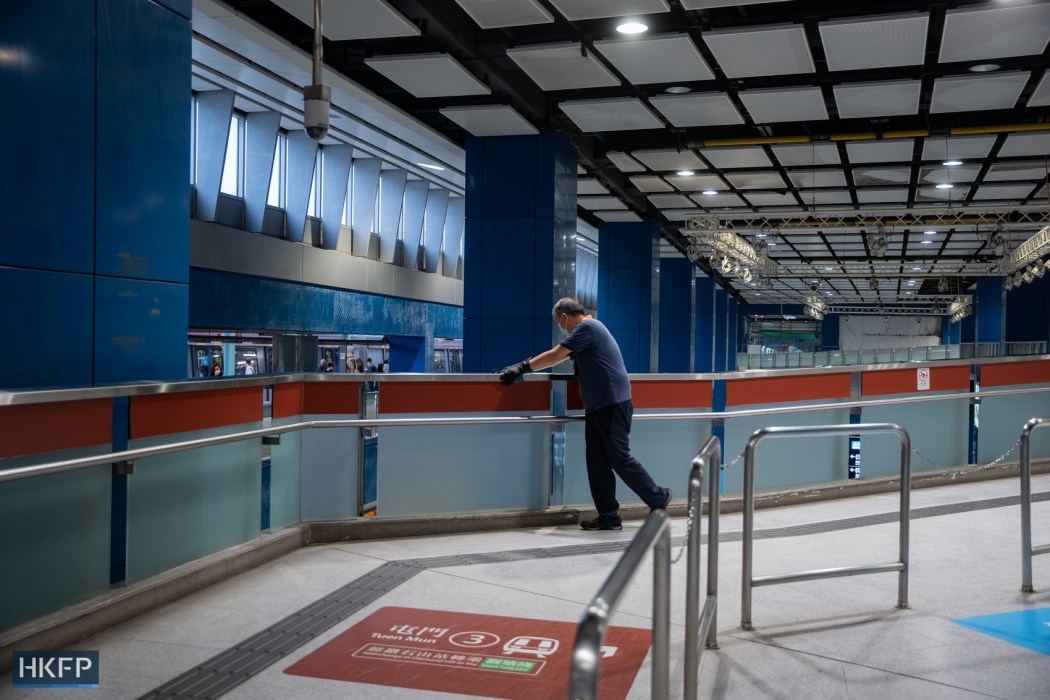
“I haven’t taken a break for a long time. Artists don’t take breaks. One of my biggest takeaways from working as a cleaner is that when the grassroots workers are off work, at least they really no longer need to think about work anymore,” Ching told HKFP.
“But of course, it’s different, because I’m doing what I’m interested in,” he added.
“I don’t know if I will continue to work like this in the future, but I’m confident that once you find your interests, they do not just disappear… On the topic of labour rights, I will always find the motivation to continue exploring.”
Support HKFP | Policies & Ethics | Error/typo? | Contact Us | Newsletter | Transparency & Annual Report | Apps
Help safeguard press freedom & keep HKFP free for all readers by supporting our team

LATEST FROM HKFP
HKFP has an impartial stance, transparent funding, and balanced coverage guided by an Ethics Code and Corrections Policy.
Support press freedom & help us surpass 1,000 monthly Patrons: 100% independent, governed by an ethics code & not-for-profit.
Support HKFP | Policies & Ethics | Error/typo? | Contact Us | Newsletter | Transparency & Annual Report | Apps
Help safeguard press freedom & keep HKFP free for all readers by supporting our team

LATEST FROM HKFP
HKFP has an impartial stance, transparent funding, and balanced coverage guided by an Ethics Code and Corrections Policy.
Support press freedom & help us surpass 1,000 monthly Patrons: 100% independent, governed by an ethics code & not-for-profit.




